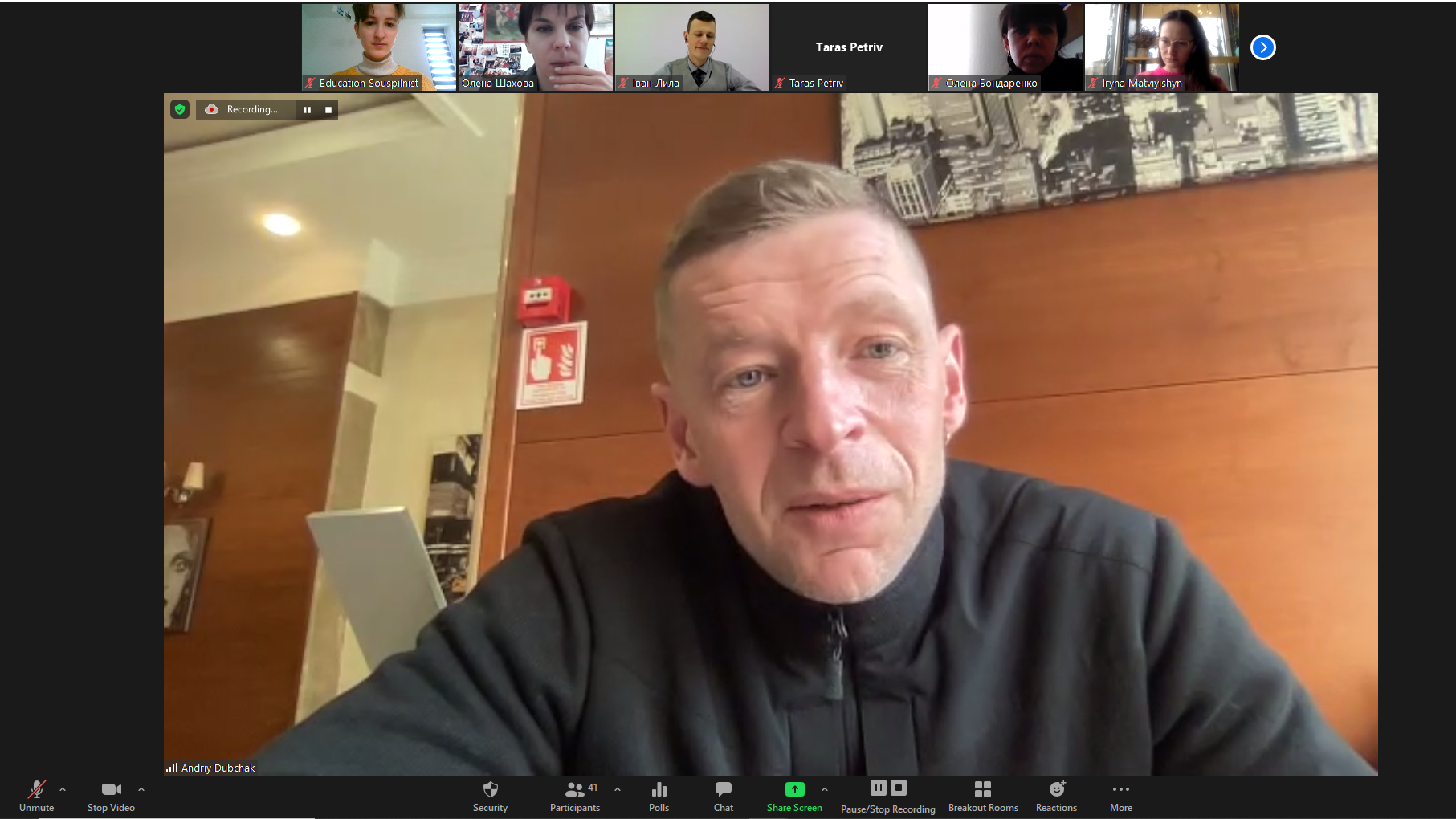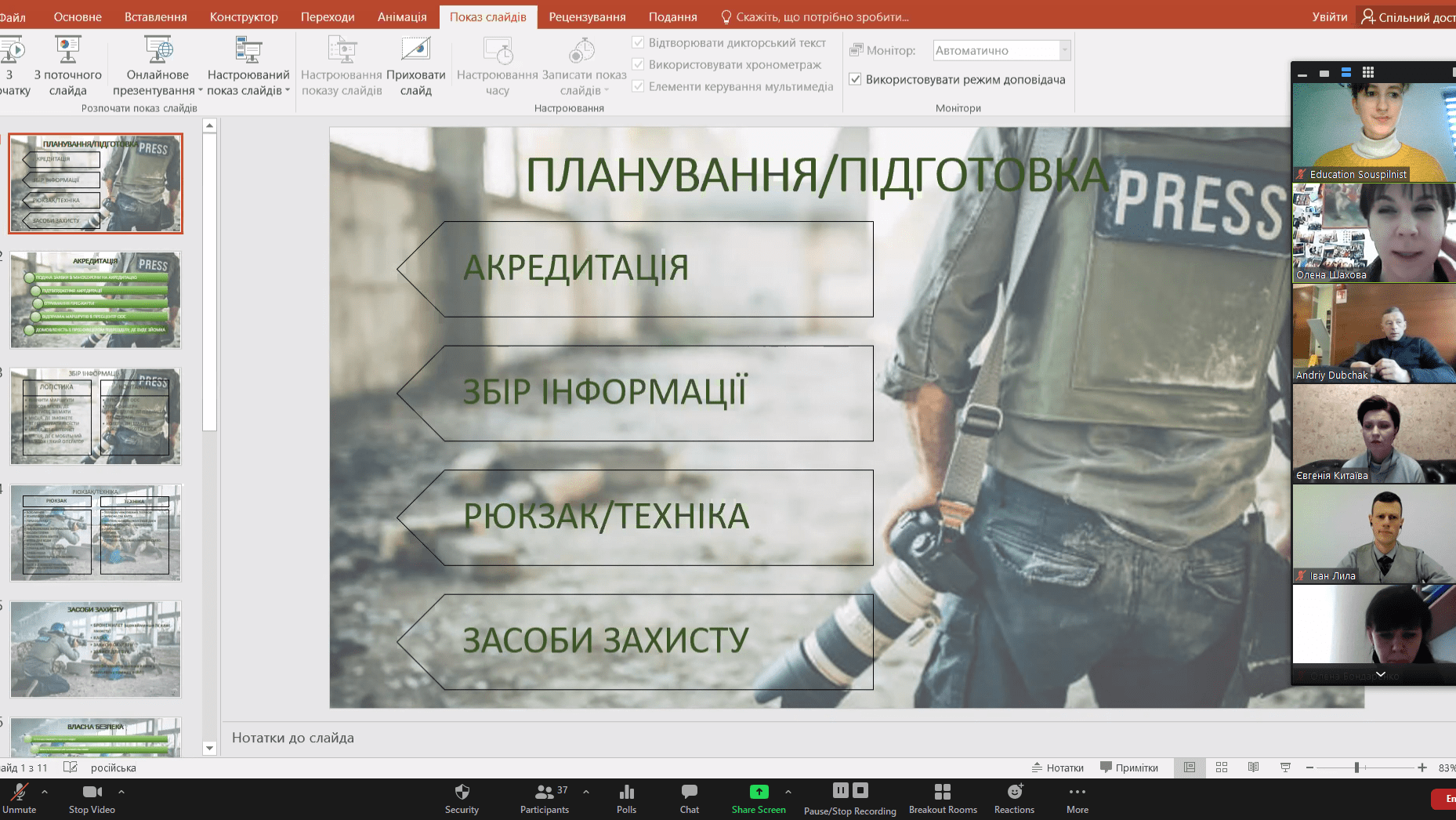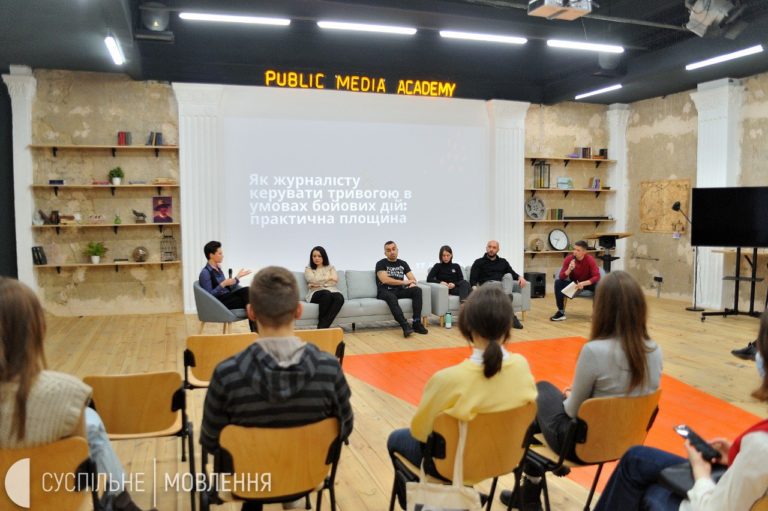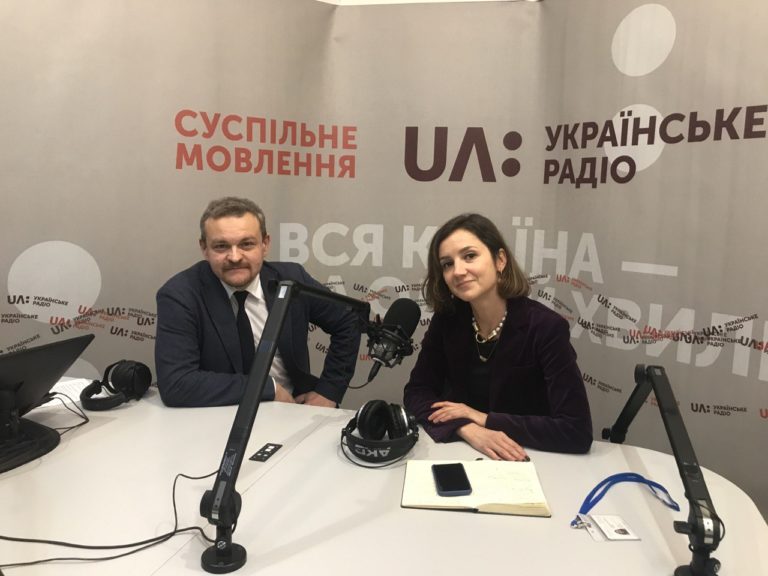Against the backdrop of reports about possible military escalation by Russia, more and more foreign journalists are making business trips to Ukraine. Fixers help them work in the Ukrainian context.
During the first part of the School for Fixers held by Souspilnist Foundation, Andriy Dubchak, owner and founder of Donbas Frontliner and fixer for The New York Times, and Yevheniia Kytayiva, military correspondent for Channel 5, told the participants about fixers, their tasks, and how to organize the work of a military correspondent.
A fixer is a locally hired coordinator (guide) helping correspondents, photographers, and TV channels’ camera crews organize their work while on a business trip in a foreign country.
Among fixers’ tasks are:
- helping with obtaining accreditation for the JFO,
- drawing up the visit schedule and the itinerary,
- having direct contacts with press officers and commanders of local units and communicating with them,
- weighing the safety risks: what can and cannot be filmed or written about to avoid exposing the service members and/or civilians to danger,
- providing first aid (if need be),
- acting as a translator,
- and being guided by journalistic ethics.
Today, most military action is taking place in the information field, with an escalation being possible. And fixers’ work pursues its strategic goal as part of the great information defense of Ukraine, Andriy Dubchak noted.
Evheniia Kytayiva spoke about how to prepare journalists to travel to the combat zone: the procedure for obtaining accreditation for the JFO, information collection, the contents of the backpack, a list of the necessary equipment including protective gear.
Working in combat zones carries many risks that are important to consider. The first preparation stage should be a weighted, clear decision to go. And the most important thing to understand is that no story is worth dying for, the military correspondent said.
40 Ukrainian journalists learned about the theoretical basics of fixers’ work. On February 12, the practical part of the School for Fixers will take place. Iryna Zemliana, media coach at the Institute of Mass Information, will conduct an intensive training program on journalists’ safety.



